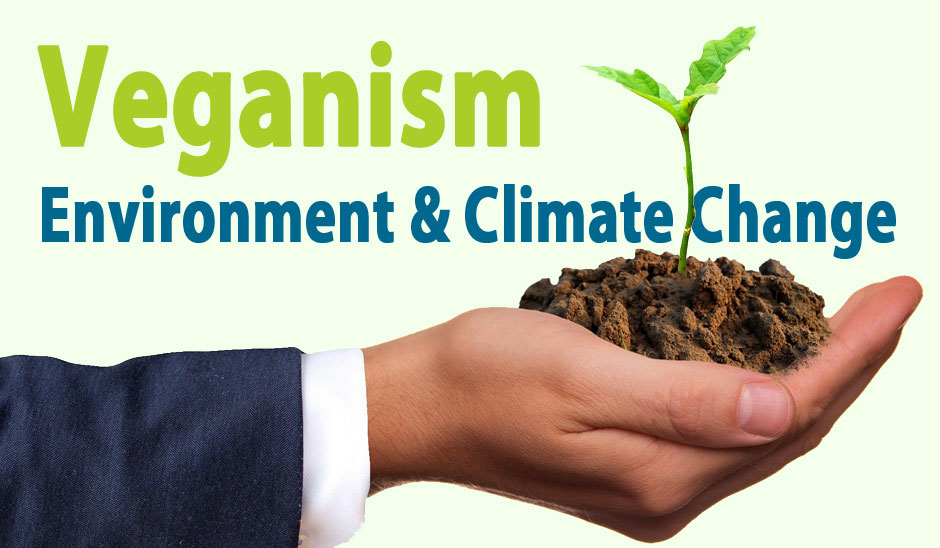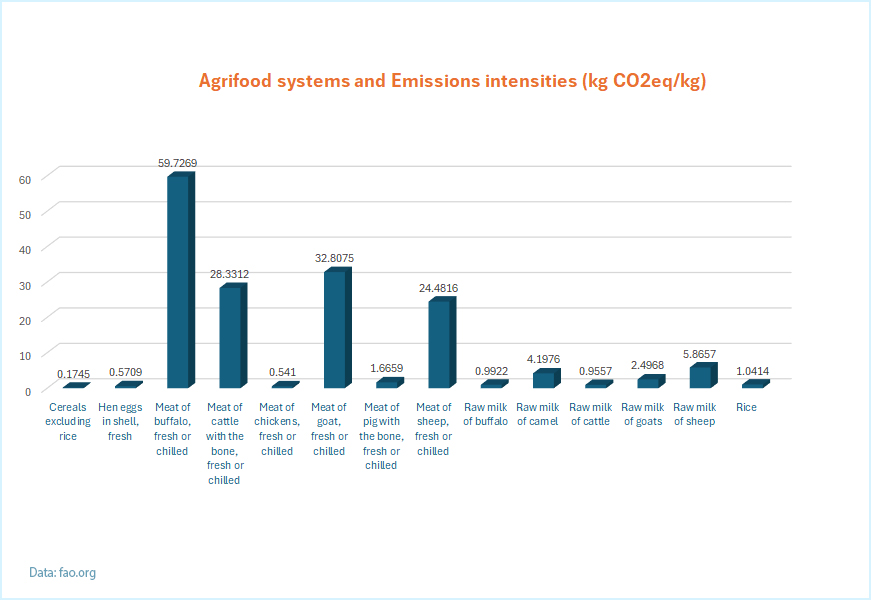Vegan and Vegetarian Impact on Environment and Climate Change
Last Updated: January 1, 2026
Tweet
Every bite of food we consume has its own environmental consequence. We can stop the rapid depletion of Earth’s resources, slow the threat of climate change, and help conserve our world for future generations by decreasing our use of animal products and shifting to veganism.
Vegetarian and vegan diets have a lower environmental effect and are more sustainable in the long run. Adopting a whole-food, plant-based diet is not only beneficial to your health but is also beneficial to the environment. Veganism is a wonderful way to save animals, improve our health, and decrease global warming all at the same time.
Water
A vegan diet has a significant influence on water use; a vegan diet can cut water consumption by up to 50%. Water shortage is a global environmental issue that has serious consequences for humanity, including death. Limiting water waste can also help protect the global ecology.
Animal Cruelty
Veganism is one of the most effective ways to help eliminate animal suffering. Refusing to pay for animal products lower demand, resulting in fewer animals being raised to suffer and die on farms and at slaughterhouses, resulting in a bigger impact on the environment.
Veganism Impact on Ocean Environment
Veganism has the potential to preserve our seas. Overfishing, pollution, and climate change all contribute to ocean dead zones, which are destroying the marine ecosystem. Water contamination can have a severe impact on animals’ appetite, and reproduction. Veganism aids in the reduction of pollution in our rivers, streams, and oceans.
Please click here to get the complete details on available programs, volunteer’s roles and activities , accommodation, cost, visa , vaccination, airport arrival and the rest of it.
Get More Info Now »
Reduce Animal Habitat Degradation and Deforestation
Vegetarianism helps to prevent wildlife habitat loss and deforestation. The requirement for larger grazing areas necessitates the degradation of critical wildlife habitats. Reduced meat consumption can assist to reduce deforestation and conserve wild animal habitats. Deforestation can result in issues such as dwindling food supplies and isolating inhabitants.

Reduce Air Pollution and Greenhouse Gases
Several crops can aid in the reduction of air pollution and greenhouse gas emissions. Vegan diets offer the greatest potential for reducing greenhouse gas emissions. Greenhouse emissions might be decreased by 35% by replacing half of all animal-based meals with vegan diets. Even switching one animal product, would have a significant impact on climate goals.
Dairy Alternatives
Pollution is a legitimate worry when it comes to conventional dairy farming. Vegan milk alternatives, such as soy milk, almond milk, rice milk, and oat milk, have lesser environmental implications than dairy, thus they should be considered. Diverse diary alternatives lessen the environmental impact of conventional dairy products.
Degradation
Animal husbandry adds to land deterioration as well. The excessive grazing of animals causes the land to lose water and nutrients, resulting in wide swaths of unusable desert land. Farmland used to grow corn and other foods given to farmed animals, particularly cattle destined for meat during their final few months of life.
How Vegetarian Consumption Can Help Environment in Coming Years
As also mentioned by David Attenborough in Planet Earth III, if we move more towards plant-based diets then sun's energy goes directly into going our food. Diet is definitely our personal choice but adding vegetarian practices can be helpful for the environment and for the planet.
With improving technologies inventing plant based meat products, high tech farms growing the plants vertically, these are some human achievement encouraged by vegetarian culture of people. This is going to be revolutionary in coming years, to ensure the better future of this planet.
Conclusion: Vegan and Vegetarian Impact on Environment
A vegan or vegetarian diet is one of the healthiest personal choices one can make to save the earth. Veganism and plant-based eating must become more widespread, and animal agribusiness as we know it must be decreased and, finally, eliminated.
The vegan diet has the least environmental effect. The use of water to irrigate lands and crops for animal feeding is an inefficient use of natural resources that is unsustainable for feeding future generations. It demonstrates that land clearance is frequently utilized for grazing and agricultural feeds for animals eaten, rather than crops used to feed local residents.
Please click here to get the complete details on available programs, volunteer’s roles and activities , accommodation, cost, visa , vaccination, airport arrival and the rest of it.
Get More Info Now »


